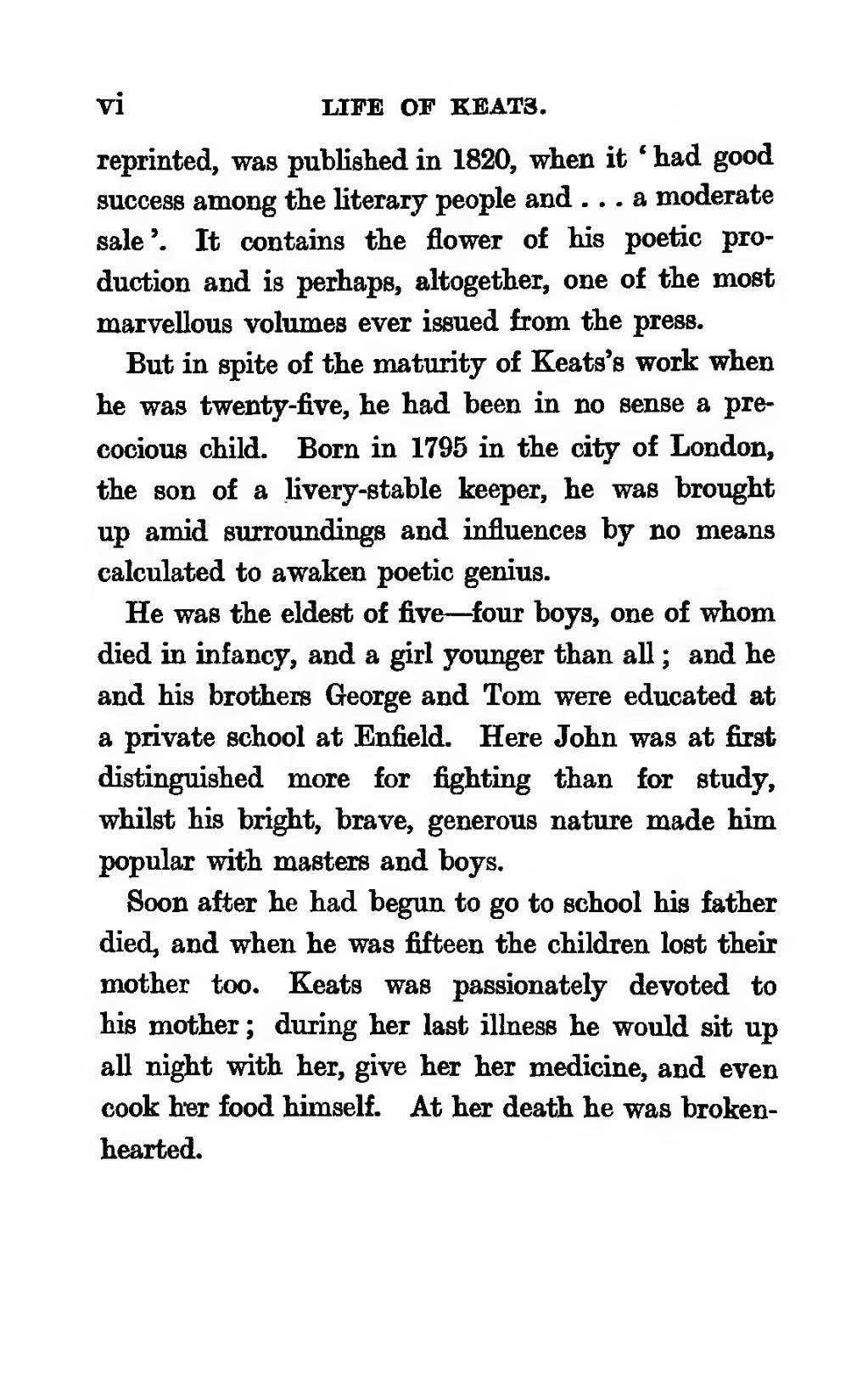reprinted, was published in 1820, when it 'had good success among the literary people and... a moderate sale'. It contains the flower of his poetic production and is perhaps, altogether, one of the most marvellous volumes ever issued from the press.
But in spite of the maturity of Keats's work when he was twenty-five, he had been in no sense a precocious child. Born in 1795 in the city of London, the son of a livery-stable keeper, he was brought up amid surroundings and influences by no means calculated to awaken poetic genius.
He was the eldest of five—four boys, one of whom died in infancy, and a girl younger than all; and he and his brothers George and Tom were educated at a private school at Enfield. Here John was at first distinguished more for fighting than for study, whilst his bright, brave, generous nature made him popular with masters and boys.
Soon after he had begun to go to school his father died, and when he was fifteen the children lost their mother too. Keats was passionately devoted to his mother; during her last illness he would sit up all night with her, give her her medicine, and even cook her food himself. At her death he was broken-hearted.

